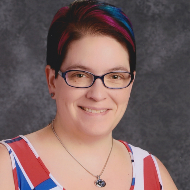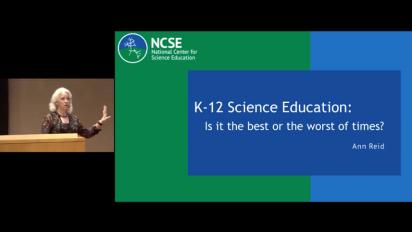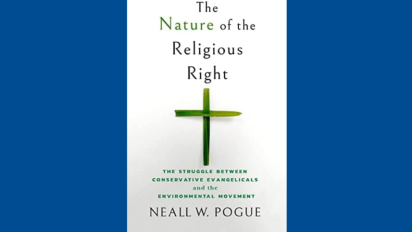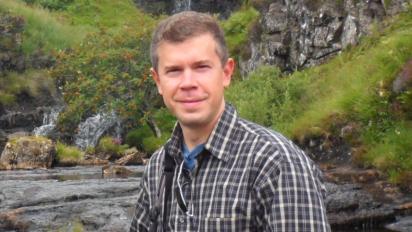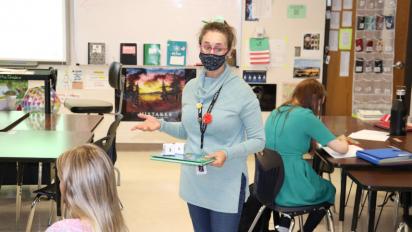Teacher Ambassador Spotlight: Ericca Thornhill
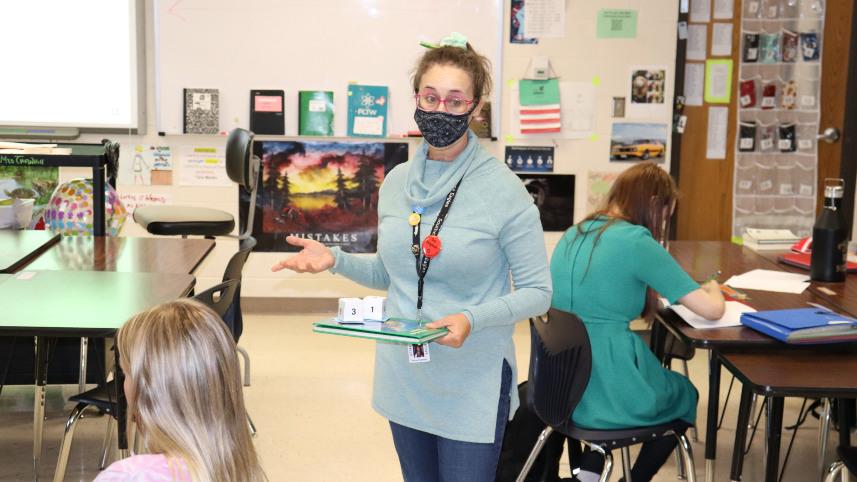
At the National Center for Science Education, the Supporting Teachers team has the opportunity to work with amazing teachers across the United States who represent a wealth of knowledge and experience. Among them are the NCSE Teacher Ambassadors, who go above and beyond what is required to teach science in today’s educational system. Today, we’re highlighting the work of Ericca Thornhill, a high school science teacher from Columbia, Missouri.
Thornhill has taught high school science for 25 years and is currently an instructor and science division chair at Mizzou Academy, an online/blended school embedded within the University of Missouri’s College of Education and Human Development research program. Her work with NCSE began when she joined the Nature of Science teacher cohort assembled at Clemson University in the summer of 2019.
In the summer of 2022, Thornhill was a teacher at the Missouri Scholars Academy, a three-week student program offered at the University of Missouri for gifted students from across the state. The enrichment course she developed and taught there was based on the resources and pedagogy she helped NCSE develop while working with the Supporting Teachers program. Specifically, her course focused on helping students overcome common misconceptions about science by engaging in evidence-based learning and reasoning, with three major areas of focus: (1) what is science, (2) what is pseudoscience, and (3) how to talk to science deniers that are often family or friends. As this was not a formal classroom situation, but more like a summer camp for dedicated students, there were plenty of field trips and special guest speakers as well!
Recently, Thornhill shared insights about her experience teaching this new course. She pointed out that the opportunity to delve into the process of science helped to strengthen her students’ critical thinking skills and ability to identify misinformation and pseudoscience readily. In fact, she was surprised at how excited her students became at analyzing logical fallacies, identifying cherry-picked data, and debunking conspiracy theories.
It’s a sign of a good teacher that the students have learned how to hear and test new ideas.
Thornhill was particularly impressed when her students had the opportunity to meet with a local meteorologist who they knew was a vocal and prolific climate change denier. The students adeptly used their new knowledge to challenge his arguments with evidence. They were surprised at the effectiveness of their efforts: he even went as far as to acknowledge that climate change was “probably” caused by human activity, although he quickly used irrelevant data to change the subject. After the conversation ended, the students were eager to compare notes about every logical fallacy he used. They even spotted the irony that he invoked climate models to support his perspective despite having previously claimed that the unreliability of climate models means that anthropogenic climate change can’t be definitively proved.
As part of the course, Thornhill invited NCSE Executive Director Ann Reid to speak with the students about engaging with science deniers through no-conflict approaches. “When I met with these students, I was struck by the quality of their questions and, perhaps even more importantly, their follow-up questions,” Reid recalled. “Many of them wanted to know how to talk to friends or family members who reject well-established scientific conclusions. While they might have been hoping for a one-line zinger, I suggested that they needed to think about how to win those people’s trust and respect before they could change their minds. The students immediately began strategizing about how to do that. It’s a sign of a good teacher that the students have learned how to hear and test new ideas.”
Through these kinds of experiences, Thornhill’s students’ critical thinking skills steadily progressed. Whenever possible, she included a variety of the resources she helped develop, including several activities found in NCSE’s Nature of Science lesson set plans. She reports that her students most enjoyed debunking pseudoscience examples, as seen in “Science Can Make You Strong,” and using the FLICC heuristic that helps to reveal the workings of science denial arguments, found in “Science Is a Way of Knowing.”
Asked why she felt a course like the one she developed for the Missouri Scholars Academy was so crucial in this current climate, Thornhill responded: “When you make decisions on anecdotal evidence instead of empirical evidence, it can do real harm. Critical decisions can be affected by bad data. It can harm our local communities and our nation as a whole.”
Ericca Thornhill embodies the type of teacher any parent or guardian would hope their students would encounter in a high school science classroom. NCSE is delighted to have the chance to shine a spotlight on the amazing work she is doing, both for NCSE and her students, every day.
This version might differ slightly from the print publication.

